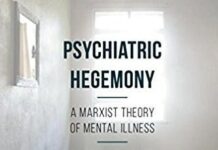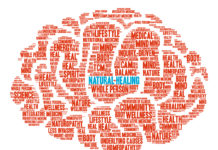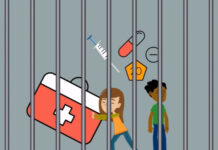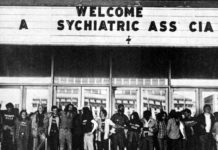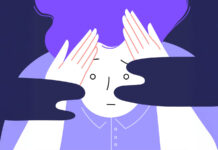The Trauma Craze: How the Expansion of Trauma Diagnoses Fueled Victimhood Culture
Exploring the paradox of increasing trauma diagnoses in a safer world and the proliferation of trauma culture.
Emotional Pain and the Possibility of Finding Hope
The human need to not be left alone when we are suffering is very great. During such times our very basic human needs for being valued, seen, heard and cared about arise as we are at our most vulnerable and are dependent on the goodwill of others.
Psychiatric Hegemony: A Marxist Theory of Mental Illness
In Psychiatric Hegemony: A Marxist Theory of Mental Illness, Bruce Cohen explains the expanding power and influence of psychiatry in terms of its usefulness to the capitalist system — the more useful it is, the more power it is given, and the greater its power, the more useful it becomes.
Do Psychiatrists Harm their Patients out of Stupidity?
I think it is fair to say that many psychiatrists display an enormous lack of good sense and judgment. Psychiatrists are in the firm grip of a collective force field of an almost fundamentalist belief system that blinds them to the harm they unwittingly do and the human rights abuses they commit.
Jung’s First Dream, The Mad God Dionysus and a Madness Sanctuary called Diabasis
With a loud piercing cry, the bare chested Native American warrior hurled his tomahawk at John Weir Perry with full force. John told me...
Reimagining Healthcare
The conventional Western classification systems of health conditions are based on flawed science shaped by reductionist, hierarchical, and profit-driven ideologies. THEN wants to create a new paradigm built upon principles drawn from systems science, the life course perspective, developmental neurobiology, and other evidence-informed studies.
Hegemonic Sanity and Suicide
The “good” suicide attempt survivor wakes up in a hospital bed bathed in beautiful natural light, surrounded by the people who love them most, and they realize that their thinking was flawed and all those unsolvable problems can actually be solved if they are just compliant with medication and therapy. And then there's the “bad” suicide attempter who is angry that they lived, who challenges the status quo.
Starvation: What Does it Do to the Brain?
The Minnesota Starvation Experiment was conducted at the University of Minnesota during the Second World War. Prolonged semi-starvation produced significant increases in depression, hysteria and hypochondriasis, and most participants experienced periods of severe emotional distress and depression and grew increasingly irritable. It really should not be a surprise to this audience that the brain’s functioning is highly compromised when the body is being starved of food (and nutrients). What we wonder is whether eating a diet of primarily highly processed foods low in nutrients has similar effects.
Having Empathy Doesn’t Mean That You Also Have Compassion!
There’s a very common, pop-psychology, new-age misconception that conflates being empathic with being caring and compassionate. But some of the most highly empathic people I’ve ever known have been con artists, grifters, unrepentant thieves, cynically manipulative fearmongering politicians, and heartless predators of every kind.
Usage of Depression Pills in Children and Young People Must Stop
Our citizens would be far better off if we removed all the psychotropic drugs from the market, as doctors are unable to handle them.
The Creativity and Suicide of Robin Williams: A Phenomenological Study
My purpose in writing this case study is not to suggest that creativity is a mere byproduct of trauma, or to deny the role of so-called mental illness in suicide, but to situate these phenomena within the context of human lives. To render them humanly (rather than medically) intelligible. With his mind and body disintegrating, Robin Williams took his life to thwart the eradication of self.
Beyond the Pill Paradigm: Reclaiming Humanity in Mental Health Care
By tackling social causes of distress along with personal support, we prevent suffering rather than just reacting to emergencies.
ADHD: A Destructive Psychiatric Hoax
Nobody is denying that inattention, hyperactivity, and impulsivity can be real problems. The issue at stake, however, is whether it makes any sense to conceptualize this loose cluster of vaguely-defined problems as an illness.
Reflections on the Silicon Valley Teen Suicides-by-Train: Fifteen Years Later
A psychiatrist and mom reflects on teen suicide clusters in Palo Alto and discusses alternative ways to address adolescent mental health.
Mad in Portugal
Mad in Portugal's readers can find blogs, book reviews, and first-person testimonials from voices less present in mainstream narratives.
Why Should Suicide (Or Voluntary Death) Be a Civil Right?
Regardless of what one's moral stance is on the value of life, or the meaning of death, it is time to recognize that there are people whose views differ from ours, and that we do not have the right to force them to live (and die) the way we want to. We all die; it's the journey that matters, not the destination.
Psychosocial Disability and Legal Capacity: Don’t Bargain with Human Rights
For persons with psychosocial disabilities, one of the most fundamental rights laid out in the CRPD is the right to equal recognition before the law and legal capacity (Article 12). Our latest Position Paper focuses on Article 12 of the CRPD.
Part 2: Are We All Neurodivergent Nowadays?
The unacknowledged politics of neurodiversity: How neoliberalism and exploitation help explain the rise of neurodiversity rhetoric.
Metacognitive Training (MCT): A New Treatment Approach for Delusions
Since psychosis does not occur instantaneously and suddenly, but is often preceded by a gradual change in the appraisal of one’s cognitions and social environment, empowering metacognitive competence may act prophylactically to prevent or hinder a psychotic breakdown.
The Promise of Open Dialogue
Open Dialogue is an innovative, network-based approach to persons experiencing severe psychiatric crises and conditions. Developed at Keropudas Hospital in Tornio, Finland, this way of working has garnered international attention for its outcomes with first time psychosis. Noting the positive interest Open Dialogue has begun to attract in the U.S., publisher Marvin Ross, in a recent Huffington Post blog (11/11/13), argues that before making the global claim that Open Dialogue achieves better results than standard treatment, we need to do more research. I agree.
“Hidden Valley Road” and Schizophrenia: Do Genes Tell the Story?
The “genetics of mental disorders” story told in Kolker's "Hidden Valley Road" involves omission and misrepresentation of genetic research.
The New DSM Is Coming and That Isn’t Good News
Binge Eating Disorder is one of many invalid diagnoses we’ll continue to receive as a result of the APA’s failure to correct the mistakes of past versions of the DSM.
Victim Blaming: Childhood Trauma, Mental Illness & Diagnostic Distractions?
Why, despite the fact that the vast majority of people diagnosed with a mental illness have suffered from some form of childhood trauma, is it still so difficult to talk about? Why, despite the enormous amount of research about the impact of trauma on the brain and subsequent effect on behaviour, does there seem to be such an extraordinary refusal for the implication of this research to change attitudes towards those who are mentally ill? Why, when our program and others like it have shown people can heal from the effects of trauma, are so many people left with the self-blame and the feeling they will never get better that my colleague writes about below?
The History of Madness Network News and the Early Anti-Psychiatry Movement
Madness Network News, founded in 1972 by two women inmates of Agnews State Hospital, was an anti-psychiatry journal that served as the focal point for organizing throughout North America, and even overseas.
A Reflection on “Unshrunk: A Story of Psychiatric Treatment Resistance”
The act of diagnosis is so influential on a person’s sense of self that its limitations need to be repeated again and again and again.



